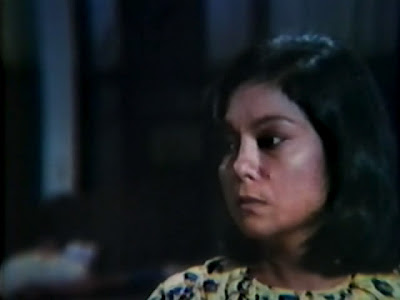Looper Joe.
Considered as one of the most highly original science fiction films in recent memory, I personally think that "Looper" is more of a great example of a cinematic pastiche done right. Think of a hundred times more vulnerable T-800 randomly meeting up with a more dead serious Doc Brown inside a dilapidated Xavier Institute and you have "Lopper".
Starring Joseph Gordon-Levitt and frequent time-traveler "Bruce Willis" (remember "12 Monkeys"?), "Looper" is a relatively bleak film with a beating heart. In a haze of modern sci-fi films that are more concerned with the extravagance of CGI rather than the beauty of human emotions, "Looper" is a commendable exception because it stimulates both the heart and the mind at the same breath.
Set in the year 2044 where hitmen (called 'loopers') are paid to kill for the gangsters of the future (the invention of time travel in 2074 has made it possible to zap people back in time), the film is about a looper named Joe and his surprising encounter with his older self.
Though not as action-oriented as "Inception" or "The Matrix", "Looper" has this visual appeal that makes me want to hug director Rian Johnson in great appreciation. Instead of relying to the wonders that computer-generated effects can do to action sequences, Rian Johnson's treatment of the film's scenes of action and violence is sort of a throwback to the olden (and maybe also golden) age of action films reigned by the likes of Paul Verhoeven and John McTiernan. This is "RoboCop" violence right here.
Given the fact that everything in the film seems to be borrowed from other pre-existing creations, director Rian Johnson has handled it all very well. As what French New Wave champion Jean-Luc Godard has said: "It's not where you take things from – it's where you take them to."
Though not necessarily a great film, "Looper" is still a fresh science fiction creation worthy of praise. But of course, it is not without its share of flaws. One of my main issues with the film is how the younger and older versions of Joe (the former being Joseph Gordon-Levitt and the latter being Bruce Willis) were not given enough time to truly interact. Perhaps the urgency of their situation calls for them not to, but their friction as two extreme states of mind, despite of them being one and the same, was not properly explored either. In that aspect, I was short-changed.
I also was not overly impressed by the whole 'Rainmaker' concept. In case you still haven't watched the film, 'The Rainmaker' is a futuristic and telekinetic Hitler, plain and simple. Because of his unmatched power, he has single-handedly taken over the future and is now closing all the loops. By the way, to close a loop means that a looper's future self is to be sent back in time so that it can be killed by none other than his younger self.
For me, just the very idea of a present and future self freely interacting with each other and the dangers of doing so is enough to form one thematically weighty film. But wait, the film's creators thought that that would not properly suffice so they have integrated the overly ambitious idea of a Book of Revelations-esque figure like 'The 'Rainmaker' to complexify (yeah, give me that red underline, MS Word) things even more. I sure do love cinematic complexity when I sense one, but what I do not want is thematic overload, which this film is a great example of.
But on the other hand, I did enjoy the performances. Joseph Gordon-Levitt is quietly intense as the younger Joe. Though his narrations may be quite spoon-feeding at times, his on-screen performance is comparably lesser (yet effective) in exposition. His face may display the same constipated look throughout the course of the film but you can constantly sense the escalating conflict brewing within him. Here in "Looper", Joseph Gordon-Levitt has just proved that the less showy characters are always the hardest ones to portray because it's a make or break kind of thing. As an actor taking on such a role, it's either you'll be accused of lazy acting or praised for your powerful subtlety. In his performance's case, it's definitely the latter.
Now perhaps I'm quite biased on this one because I have always been a big fan of his, but I really think that it was Bruce Willis who has exuded the better presence in the film. In his portrayal of the older Joe, there's this certain air of 'nothing to lose' desperation and melancholy that really makes his character so sympathetic yet frightening; echoes of his performance in "12 Monkeys" persists.
As for the rest of the cast, I think that two other actors have really stood out. The first one is the beautiful Emily Blunt, whose turn as a desensitized, no-nonsense Southern woman named Sara is very convincing. The second one is Pierce Gagnon, whose terrific juvenile performance as Sara's mysterious son has elevated the film to a whole new level. Now this might be a bit of an exaggeration, but not since Catinca Untaru in Tarsem Singh's "The Fall" have I seen a better child performance.
All in all, I was very impressed by "Looper", especially in how it has preferred silence and dialogue over cheap plot twists and slam-bang action. But from where I can see it, I think that the film is ultimately a victim of its own ideas. Torn between time travel, telekinesis and dystopia, what resulted is a finely-executed yet fairly confused film. Perhaps some thematic trimming is what the film needs.
FINAL RATING












